Interview with historian Serhii Plokhy on Russia after Putin, Ukraine without Zelenskyy, and dialogues with Russians
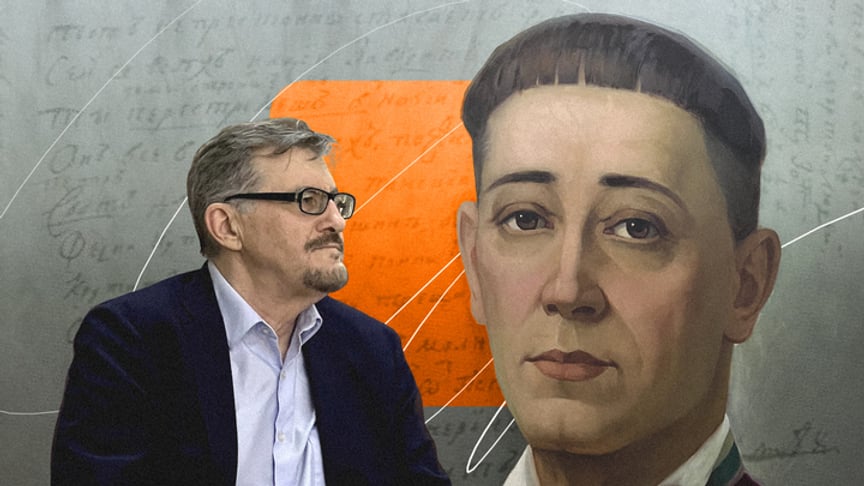
The conference hall of the Kyiv-Mohyla Academy is empty. The meeting with historian Serhii Plokhy will begin in 20 minutes. Out of 100 chairs, only one is occupied by Plokhy himself. The doctor of sciences, professor, director of the Ukrainian Research Institute at Harvard University, and one of the most authoritative Ukrainian historians, author of many books, articles, and studies, is waiting for the students to arrive.
His book The Gates of Europe: A History of Ukraine opened Ukraine to many people. In May 2023, a new book, The Russo-Ukrainian War. The Return of History, was published. The author says that he broke the architecture of historiography in it because it is a science of the past, and he began to write about the present.
After the lecture with the students, Serhii and I had less than an hour for an interview as he was in a hurry to catch a train to return to the United States, where he has lived and worked for over 15 years. Nevertheless, despite the limited time, we managed to talk about whether the war will end with Vladimir Putin's death, Volodymyr Zelenskyy's role in Ukraine's victory, the chances of a Ukrainian Eisenhower or de Gaulle, and "good Russians" and whether it is worth communicating with them.
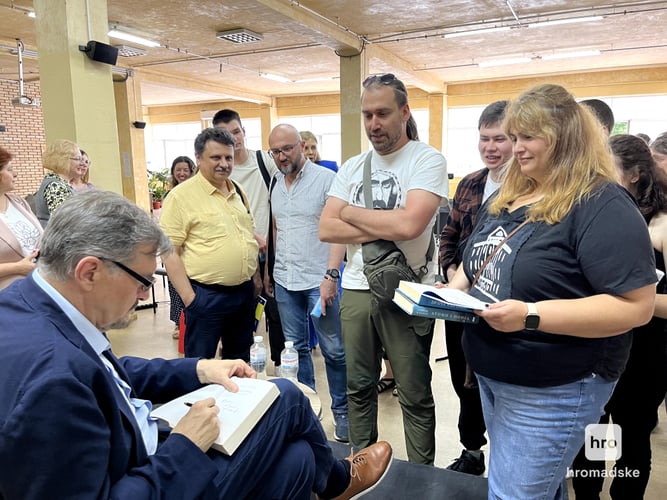
hromadske: You often use the phrase "the collapse of an empire" and say that it depends on Ukraine not only to remain an independent state, but also to dismantle Russia. Will we have the strength and capabilities to do everything?
Serhii Plokhy: In the history of the world after 1945, there are actually only exceptions when great powers win wars against mobilized national movements. In this sense, Ukraine has a lot of strength.
By defending itself, it is also shaking up the architecture of the Russian sphere of influence, when it comes to, for example, Central Asia, Kazakhstan, and Armenia. Since the war is weakening the Russian Federation, the dependent territories are distancing themselves from Russia. It also pushes former dependent territories, such as Finland, to fully integrate into NATO. We can already see these things. This is the outer perimeter.
With regard to the Russian Federation itself, we see that there were frictions related to the level of mobilization, which was higher in the national republics. And this war has actually led to an impetus for the Russians themselves when it comes to their attitude towards the regime. In other words, it has contributed, if not to destabilizing the regime, then to undermining its legitimacy.
As a result, an isolated post-Putin Russia will face a very difficult period of time, where disintegration may become part of the story. It may or may not.
But war is a crisis, and it is clear that this war cannot continue after Putin because it is not in the interests of many, including Russian businesses.Serhii Plokhy, Doctor of Historical Sciences, Professor and Director of the Ukrainian Research Institute at Harvard University
There will be changes, there will be some tectonic shocks. And from this point of view, such countries or parts of Russia, such as Chechnya, which de facto already function almost as independent countries, may leave Russia, and Russia is Kadyrov's tributary, not vice versa.
I do not believe that these changes will affect the whole of Russia in the long run. It is the Russian territories, or the territories that Russia has managed to fully Russify culturally, that will remain as one country in the long run.
The biggest ideological force in the Russian Federation is nationalism. It will keep these Russian territories. We need to tune in to the possibility of partial disintegration and to the certainty that Russia will remain our closest neighbor and potentially our most dangerous enemy for the long term.
Once my thirteen-year-old daughter asked me: look, the Germans are a respected nation now, everyone respects them, so does this mean that in a few decades, the same will happen to the Russians? I explained to her what Germany had gone through, that the Germans had been paying reparations until recently, and suggested that it was unlikely that Russia would follow this path. But the question remains. How should we live after the war with such a neighbor?
Negotiations are ongoing even today. In particular, they are related to the exchange of prisoners of war. That is, there will be some things that need to be discussed, where there are fundamental interests, both ours and Russia's.
Returning to the experience of World War II, I do not see any prospect that the generation that will survive this war will have a radical change in its attitude toward Russia. For this generation, Russia is an aggressor and a criminal. But new generations will come, and first of all, everything will depend on what happens to Ukraine and how Russia is transformed. If Ukraine remains democratic and integrates into European structures, but Russia does not, then these frictions will continue, to put it mildly, in the next generations.
Once my thirteen-year-old daughter asked me: look, the Germans are now a respected nation, everyone respects them, so does this mean that in a few dozen years the same thing will happen to the Russians? I explained to her what Germany had gone through, that the Germans had been paying reparations until recently, and assumed that Russia was unlikely to follow this path. But the question remains. How can we live after the war with such a neighbor?
Negotiations are ongoing even today. In particular, related to the exchange of prisoners of war. That is, there will be some things that need to be discussed, where there are fundamental interests - both ours and Russian as well.
Returning to the experience of the Second World War, I do not see the prospect that in the generation that will survive this war, the attitude towards Russia can radically change. For this generation, Russia is an aggressor and a criminal. But new generations will come, and first of all everything will depend on what happens to Ukraine and how Russia is transformed. If Ukraine remains democratic and integrates into European structures, and Russia does not, it means that these frictions, to put it mildly, will continue in future generations.
But what this war has definitely put an end to is the ideology with which Putin started the war: that Russians and Ukrainians are "one people." I think that this return is unlikely not only in Ukraine but also in Russia.Serhii Plokhy, Doctor of Historical Sciences, Professor and Director of the Ukrainian Research Institute at Harvard University
Now it is difficult for us to say and understand what is happening there (in Russia - ed.), but in the historical perspective, hundreds of thousands of coffins that have come and will come from Ukraine carry any load and any meaning, but not that Russians and Ukrainians are one people. Sometimes the effect of such things is felt in the long run.
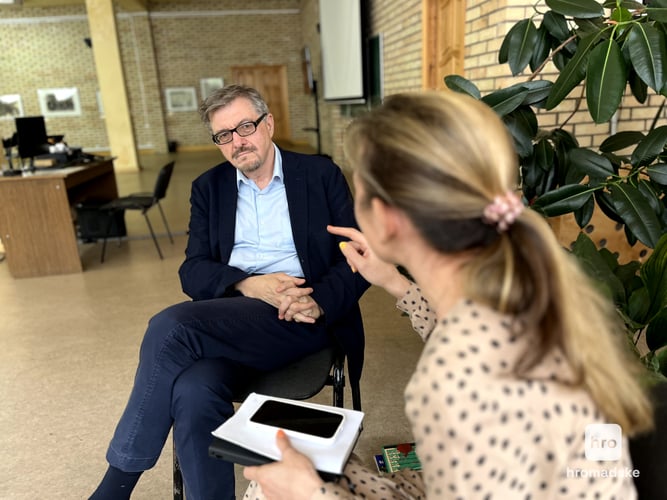
In your answer to the first question, you said that a lot will change with Putin's departure. Do you believe that the war can end with his death?
I believe that this war is absolutely unprofitable for Russia on a large scale, it causes a lot of damage to Russian business, Russian representation in the world. I do not believe that this generation of Russians will prefer, say, a vacation in Beijing to a trip to Paris.
There will be some kind of a rollback and a return to rebuilding bridges with Europe because at their peak, the Russian imperial and modern elite were oriented toward Europe in terms of education and other things.
After the death of a tyrant or dictatorial leader, there is always a certain choice and struggle between his heirs. And none of them will be strong enough to continue a policy that is so harmful to Russia itself.Serhii Plokhy, Doctor of Historical Sciences, Professor and Director of the Ukrainian Research Institute at Harvard University
This is the view of a historian. We cannot look into tomorrow; we can only make assumptions. This scenario looks most likely from the point of view of Russia's history over the past 100 years. The changes that took place there from Lenin to Stalin, the competition between the heirs after Stalin's death, are all examples of an opportunity for totalitarian regimes to change course.
Sociology shows that Russians still largely support Putin and the war. And there is an opinion that all this is due to strong state propaganda. But is it only due to it? To what extent has the imperial historical science in Russia contributed to the fact that today Russians support the war?
Of course, it has. Putin is a politician. He tries to make policy based on trends in Russia itself. In a country that existed as an empire for several centuries, losing the Cold War, the collapse of what they considered Russia, was perceived as a great trauma for the population as a whole.
This so-called chauvinistic imperial streak is what helps Russians hold on, it's part of their identity. It doesn't change overnight, it doesn't change with [Boris] Yeltsin climbing on a tank and suddenly everything changing.
It's a process, and with the fall of an empire, these imperial nations experience what is known as phantom pains. This is a more or less stable reaction of most empires. How is this corrected? It happens through defeat. This is the only cure for imperialism.Serhii Plokhy, Doctor of Historical Sciences, Professor and Director of the Ukrainian Research Institute at Harvard University
And Russia is getting them nowadays. Unfortunately, thanks to us.
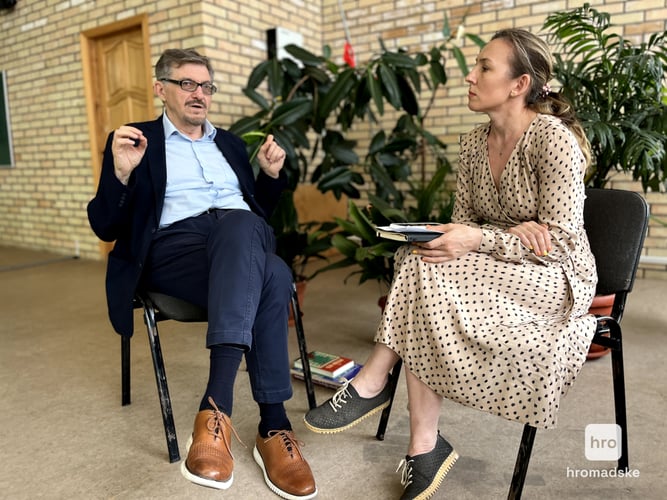
Do you follow Russian historians working in exile? And if so, have they begun to comprehend their colonial past and present?
One of them is Tatiana Tairova-Iakovleva, who is very well-known in Ukraine. But her position was clear from the very beginning, so it was not the war that changed her.
Journalists had a faster reaction than historians. I wrote a positive review of Mikhail Zygar's book. In my opinion, this is the first attempt in several centuries, successful or unsuccessful, but the first attempt by Russians, the first attempt on behalf of the Russian intelligentsia to take responsibility for what is happening and to revise Russian history from this angle. So there is already this first clear statement from journalists, and for me this is a very significant thing. I do not recall anything like this in the intellectual history of Russia over the past two hundred years.
So there are "good Russians"?
Yes, and they have already begun the process of rethinking. And this is our salvation for the long term.
We have to make Russians think differently about themselves and about us. We have to change their perception that Ukrainians are Russians who are somehow spoiled by the Poles, the Austrian General Staff, and all sorts of other things. So that they understand where Russia's borders are and that Ukraine is not part of them.Serhii Plokhy, Doctor of Historical Sciences, Professor and Director of the Ukrainian Research Institute at Harvard University
Until we change this way of thinking, we are doomed to endless war. And the only way to change this is to work with the "good Russians." We simply have no choice.
Do you think they can't do it without us?
They won't if we don't offer them other perspectives and some views.
You have been living abroad for many years, communicating with different audiences. To what extent has the opinion about Ukraine changed, and how we are not the gateway to Russia but the gateway to Europe?
I think that in most people this perception has changed. And publications and books on this topic have played a role – it's important, I'm not going to show false modesty.
But the main thing, of course, that changed the perception was the events that took place here. That the country has not fallen, that the country is fighting, that the country is standing. This is a message that cannot be ignored. The interest in Ukraine is not decreasing, and the idea of Ukraine as something other than Russia is growing every day.
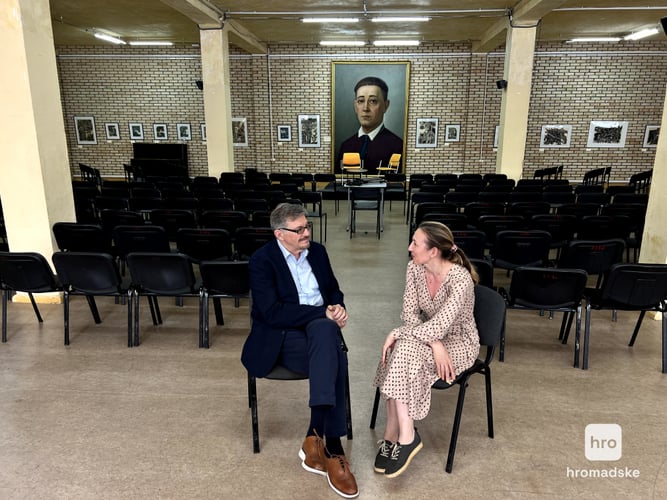
Zelenskyy has become a superstar for the world. Do you think that the fact that he was different, not from the political nomenclature, contributed to the world's help?
He turned out to be a very effective communicator.
To the outside world?
Yes, outside. And the fact that he held on and held all this together, which is now being joked about – "bonevtik" – is actually very serious. When the top of the pyramid breaks, the whole pyramid falls down.
We know what happened in Afghanistan, we know what happened with [Viktor] Yanukovych. The stereotype was that you should run away – are you stupid to fight against Russia? What are the chances? Create a government in exile! For various reasons, he refused to do so, which was very important.
His support in Ukraine is now the highest among politicians, despite all sorts of problems. It is clear that he is communicating here, maybe not perfectly, but he is communicating. Now it's a little harder to reach him, but in the first years, he was phenomenal, as evidenced by the mobilization of the world and the money the world gave us.
Zelenskyy has become a brand. And without such a brand, it's not that nothing would have happened, but it would have been much more difficult.Serhii Plokhy, Doctor of Historical Sciences, Professor and Director of the Ukrainian Research Institute at Harvard University
Textbooks discuss the main assessment. This assessment of his behavior during the war is different from the assessment of his behavior before the war. But the fact that he came and won the presidential election as a candidate for peace, as a "stop shooting" candidate, and so on, gave him the political capital to capture the population of Ukraine as a whole.
Because if such a "stop shooting" candidate says that we need to take up arms and fight, the trust in the fact that there is no other way out grows significantly. That is, if Zelenskyy says that Russia is the enemy, there is no doubt about it. It would be much harder for say Poroshenko or a candidate of this type to mobilize Ukraine.
Will Ukraine get its own Eisenhower or de Gaulle after the war? We used to joke in the editorial office that de Gaulle lived in London, and now Zaluzhnyi has been sent there. Perhaps this is a twist of fate?
There is a general trend if the country is democratic.
Leaders, no matter how successful they are, are usually not re-elected after the war is over, because voters want to forget about the war, forget about the horror, look at other faces, hear new words, and so on. But leaders born out of war come back in 5-10 years, when the memory of the war changes and is heroized.Serhii Plokhy, Doctor of Historical Sciences, Professor and Director of the Ukrainian Research Institute at Harvard University
Take Pilsudski in Poland, de Gaulle in France, Eisenhower in the United States, and so on. This is a trend in democratic countries. If we remain a democratic country, we can have this kind of thing too.
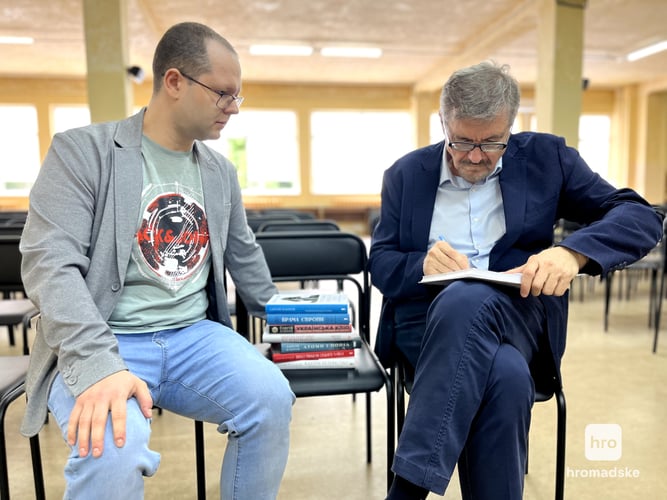
All wars end with the signing of some agreements and treaties. What should be in this agreement for us to be sure that Russia will not attack us again?
Two things should be spelled out. First, our sovereignty (that we are independent and sovereign, all our territory). Secondly, it is an iron-clad guarantee of support from our allies (no restrictions on arms or support so that we can defend this sovereignty). Everything else can be in various versions, maybe a temporary solution. But it must be clearly spelled out.
What are our chances of returning to the 1991 borders?
There are chances. This process can be extended, as the reunification of Germany took a long period of time. The reunification of Vietnam also took a certain period of time. With this regime, I foresee political and other perturbations in Russia, and this can happen. So I think there are chances.
But as a historian, I would like to say that all European countries that gained independence after the Second World War experienced serious territorial changes. Look at Poland in 1921 and Poland in 1945, look at Czechoslovakia. Territorial changes and border shifts are the norm for Europe, for the emergence of a new state.
Border shifts are normal. The main thing is sovereignty and independence, and the ability to maintain them. The Poles today are somehow coping well without Lviv.Serhii Plokhy, Doctor of Historical Sciences, Professor and Director of the Ukrainian Research Institute at Harvard University
What has changed most in Ukrainians before the full-scale invasion and after the full-scale invasion?
There is a sense of Ukrainian identity built on the defense of the state, the defense of institutions, and, as I said before, the idea of a "single Russian people" died with the first missiles.
That is, this exclusive Ukrainian identity is political, not ethnic. The ethnic component is growing, but it remains political, it has cemented itself and helped Ukraine survive. And it was a test of whether there is a nation or not, whether there is a state or not.
Anger appeared. And today there is fatigue. But with fatigue, I don't see a willingness to give up the main thing – sovereignty.
We, of course, have become an example for many in the world. The war of David and Goliath – a smaller country rising up and fighting for its independence. I think our passion will remain.
A lot will depend on how we behave after the war. Whether we don't quarrel, whether we don't slip.Serhii Plokhy, Doctor of Historical Sciences, Professor and Director of the Ukrainian Research Institute at Harvard University
The main thing is not to forget what we are fighting for today. For democracy and freedom. For a free man. And it is also important whether after the war we will create a functional, efficient society and economy.
- Share:
